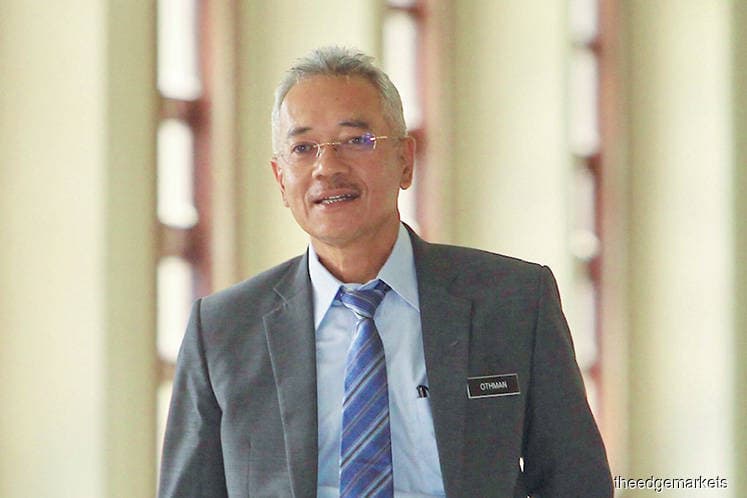
This article first appeared in The Edge Financial Daily on February 18, 2020
KUALA LUMPUR: Awarding the solar hybrid and diesel generator set project to Jepak Holdings Sdn Bhd through direct negotiations did not follow procedures, and the company’s RM1.25 billion quotation for the project was accepted without any discussions, said a witness.
The Ministry of Finance’s (MoF) deputy secretary-general of treasury management Datuk Othman Semail said the project was offered to Jepak on Nov 10, 2016. He added that the project needed to be processed by the government procurement division of the MoF.
To his knowledge, although the project was awarded via direct negotiations, it did not follow MoF’s guidelines regarding such negotiations.
“More importantly, there is no negotiation between the education ministry and Jepak over the cost of the project before the letter of acceptance was issued. The RM1.25 billion fixed by Jepak from the start was accepted by the education ministry,” he said.
When asked by Deputy Public Prosecutor (DPP) T Deepa Nair, he said as far as he knew, no physical valuation was done although it was required for all physical projects worth at least RM50 million.
Othman, 58, is the seventh prosecution witness in the trial involving Datin Seri Rosmah Mansor, the wife of former prime minister Datuk Seri Najib Razak, who was also then finance minister.
The witness added that the documents submitted did not give him a clear picture about the project’s necessity, its scope and the education ministry and Jepak’s ability to undertake the solar hybrid project, intended to provide electricity to 369 rural schools in Sarawak.
‘Anticipating problems’
The witness was concerned that the project’s implementation could run counter to integrity and good governance.
“I need to be careful with the application as it involves government procurement and directed my deputy to scrutinise the application and directly to discuss it with me,” he said.
He said he referred the application to the Procurement Committee of the First Finance Minister (JPMK1) as the project’s value exceeded RM100 million.
“The JPMK1 is chaired by Najib as the first finance minister. I choose this method [to obtain approval] as this is a holistic approach, taking into consideration all members in the committee,” he added.
This was despite Najib having issued various minutes to implement the project, such as one dated Dec 1, 2015 and another on June 7, 2016.
Before that, Othman told the court that a finance ministry circular stipulated any applications for direct negotiations must go through the government procurement division that he heads.
This division will gather and analyse information from government agencies before making appropriate recommendations to the JPMK1.
The JPMK1 will then decide whether to allow the agency seeking to directly negotiate a contract, in this case the education ministry, to do so.
Direct negotiations may only be considered for contracts involving supply, services and work done. The division would process such requests if there were directives from the palace or finance minister, according to him.
Meanwhile, the previous witness, former education ministry secretary-general Tan Sri Dr Madinah Mohamad, said she does not know why Najib ordered the solar hybrid project be quickly implemented.
“From my experience, [Najib] was the sort of leader that was visionary, forward-looking and smart. He would always tell the secretary-generals to ensure that when implementing a project, it should be done properly.
“In other words, it should have [a] sufficient allocation of money, and discussions should have been done.
“The project is on a big scale, involving huge costs and high risks. Najib’s directive was without proper planning, research and consultation with the education ministry,” she said.